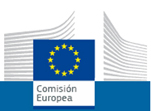Negotiations between the european parliament, the council of the eu and the
European Commission
 for the revision of the directive on open data and information of the public sector, known as Directive isps, have come to an end with an agreement that will facilitate the availability and reuse of public sector data.
for the revision of the directive on open data and information of the public sector, known as Directive isps, have come to an end with an agreement that will facilitate the availability and reuse of public sector data.
The Directive PSI entered into force in 2003 and was revised in 2013. Now, once again be reviewed based on the proposals of the european commission on which it has been negotiating until last tuesday, 22 april. It is a key revision to a sector with an economic value that grow from 52 billion generated in 2018 to 194 billion in 2030.
In total compliance with the
Regulation of General data protection of the eu
 , new directive on Open Data and information of the public Sector
, new directive on Open Data and information of the public Sector
 , (which encompasses from anonymous personal data on the use of energy in the domicile to general information on national education or literacy levels, for example) lays down the conditions under which the public sector must be available for reuse.
, (which encompasses from anonymous personal data on the use of energy in the domicile to general information on national education or literacy levels, for example) lays down the conditions under which the public sector must be available for reuse.












